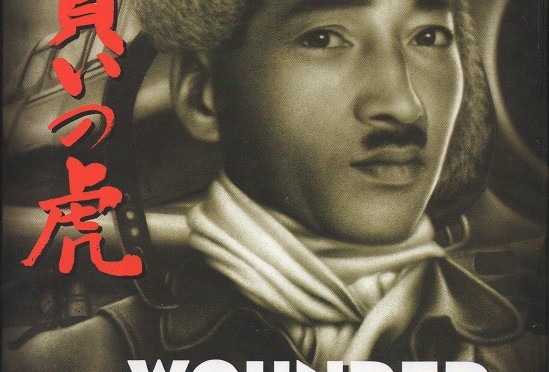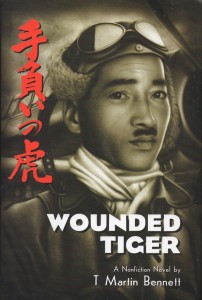Book Review: Wounded Tiger by T. Martin Bennett
Disclosure: I received this book as a Goodreads giveaway on the premise that I would review it.
Mitsuo Fuchida was the flight leader in the attack on Pearl Harbor. Jacob DeShazer was a bombardier who participated in the Doolittle Raid on Tokyo. The Covell family were missionaries. This book weaves together their stories. The author bills this as “a nonfiction novel,” recreating conversations and thoughts as much as possible from the real life records and memories of those involved.
As a top pilot for the Japanese Navy, and later a leading officer, Fuchida participated in many important events of the Pacific Theater of World War Two. But the reason this book is about him is that after the war, he learned of a Christian’s forgiveness and service even though she had every reason to seek vengeance instead. Fuchida was shocked and intrigued by this news, and eventually converted to Christianity.
Jake DeShazer spent most of the war in Japanese prisoner of war camps after the raid on Tokyo. He was severely mistreated and some of his fellow prisoners were killed. But in the darkness of his cell, the Bible came to Jake and he fully embraced religion, Christ’s words of forgiveness and mercy.
The Covells were missionaries in Japan until the government made that unhealthy, then moved to the Philippines to teach, while their daughter Peggy went to college in America. When the Japanese invaded the Philippines, they eventually hunted down and killed the older Covells as supposed spies. But Peggy did not let this crush her or her faith, and worked to help Japanese POWs, the news of which eventually reached Fuchida.
The author originally wrote this material as a screenplay, and this shows in the very short chapters, and scene-setting date and place “intertitles.” There are scattered footnotes explaining some foreign words (or in some cases revealing the Japanese phrase translated in the text.) They’re inconsistently used, and i spotted a couple of typos.
There’s no bibliography as such, but the acknowledgements do mention published works of people the author consulted.
As the majority of this story takes place during a war, there is some disturbing subject matter, particularly in Jake’s prison experiences and the chapters on Hiroshima. As a result, I recommend parents review the book before giving it to junior high or younger teens to read. The book also touches on racism between the Japanese and Americans, which was exacerbated by the run-up to the war.
Real life is messier than we like, and some sins are more difficult to make a good story out of than others. Fuchida’s long-term marital infidelity is only mentioned in the chapter in which he ends it, which means that his mistress and their child are shuffled off the stage immediately after we learn they exist, with no explanation of how this happened or what became of them. One suspects that if the movie ever gets made, this is one of the scenes that will be cut.
The writing is okay, but some of the dialogue looks a bit “cleaned up” from how soldiers and sailors normally talk.
I’d recommend this book to World War Two buffs interested in the Japanese side of the conflict, and those interested in reading the life stories of Christian converts.



I would read a book like this as it is a chance to hear the “other ” side of the story. Also it is nice to read about forgiveness on occasion as too often we hear about retribution.
I will saee if I can bring it around next time I am in town.